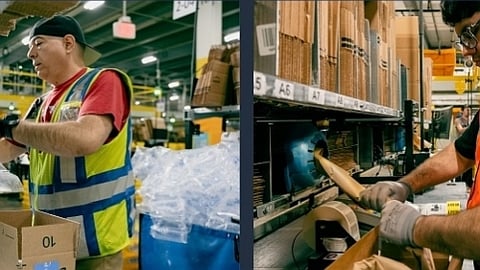Grocers, Suppliers Take Steps to Protect Pollinators
Although National Pollinator Month is coming to a close, the environmentally-important insects are getting a boost from grocers and suppliers. One might call it a hive mentality to sustain potentially fragile ecosystems.
Southeastern Grocers, Inc., parent company of Harveys and Winn-Dixie stores, reaffirmed its pledge to protect species by, among other things, avoiding the use of particular pesticides, sourcing fresh produce and floral from suppliers with third-party verified integrated pest management practices, encouraging supplier partners to obtain pollinator-friendly certifications facilitating consumer education and increasing the amount of USDA Organic produce offered in stores. The grocer also donated $10,000 to the University of Florida Ogier Gardens to support that institution’s work to preserve pollinator-friendly environments.
[RELATED: A Greener Supply Chain Is Within Reach]
During this year’s Pollinator Month, Southeastern Grocers spotlighted one of its suppliers for outstanding work in pollinator protection. According to the regional retailer, L&M uses best practices to promote a sustainable environment for the production of its fruits and vegetables, such as establishing bee sanctuaries on the outskirts of fields and orchards and eliminating the use of organophosphate pesticides.
“Our role as a community-focused grocer extends beyond the aisles of our stores. We understand the health of our food supply is linked to the well-being of our earth’s essential inhabitants – pollinators,” said Dewayne Rabon, Southeastern Grocers' chief merchandising officer. “Partnering with committed suppliers like L&M allows us to take meaningful actions that support sustainable agriculture and environmental stewardship. By prioritizing pollinator-friendly practices, we are not only securing the future of our food systems but also contributing to the resilience and sustainability of the communities we proudly serve.”
Other retailers are also doing their part to protect pollinators that are so crucial to the supply chain. In late 2023, Whole Foods Market announced a new pollinator policy for fresh product and floral categories, requiring all growers to implement an Integrated Pest Management System by 2025 that prioritizes preventative and biological pest control measures and reduces the need for chemical pesticides. The grocer also encourages its produce and floral suppliers to phase out the use of nitroguanidine neonicotinoids.
The independent Kowalski's Markets in the Twin Cities area counts small bee-friendly brands among its suppliers. The grocer carries specialty seasonal local honey from Bee Shed in Rochester, Minn., which optimizes pollinator habitats and works to educate people about the importance of pollination.
Many produce, floral and honey suppliers have taken steps to support pollinators. The Local Hive brand, for instance, sources raw and unfiltered honey from more than 200 local beekeepers in the U.S. who help honeybee thrive. Honey from those keepers is collected and sent to Local Hive’s Greeley, Colo., headquarters for bottling and distribution; the company donates a portion of proceeds to the Pollinator Awareness Through Conservation and Education (PACE) program.
Earlier in June, Salinas, Calif.-based Naturipe Farms announced that its conventional and organic berry packs are at peak quality and value through the end of August and emphasized that its produces berries in a sustainability-minded way. The grower puts a “substantial focus” on pollinator habitat growth.
CPGS are getting buzz for their sustainability efforts on this front, too. The Justin's brand of Austin, Minn.-headquartered Hormel Foods, for its part, introduced a new pollinator-friendly badge that will be featured on all of its packaging and donated $25,000 to Project Apis m. to support research on bee health and vitality. Justin’s also is a long-term supporter of the National Honey Board’s Honey Saves Hives consumer education campaign.
“We hope that by continuing to create awareness about the important role of pollinators in our food system, we can collectively help protect our buzzy little buddies,” said Penny Andino, VP of marketing at Justin’s. “Pollinators are an essential part of the ingredients we use in our products and our food system overall. We’re proud to take National Pollinator Month as a time to celebrate their importance. Now with the introduction of our new pollinator-friendly badge, consumers can also identify that Justin’s supports pollinator protection year-round.”
Jacksonville, Fla.-based Southeastern Grocers is an omnichannel retailer serving customers in brick-and-mortar grocery stores and liquor stores, as well as online with convenient grocery delivery and curbside pickup throughout Alabama, Florida, Georgia, Louisiana and Mississippi. Austin, Texas-based Whole Foods has more than 530 stores in the United States, Canada and the United Kingdom. The retailer is a wholly owned subsidiary of Seattle-based Amazon, which is No. 2 on PG’s 2024 list of the top food and consumables retailers in North America. Operating 12 stores across the Twin Cities, Woodbury, Minn.-based Kowalski’s Markets was founded in 1983 by Mary Anne and the late Jim Kowalski, and is currently run by Mary Anne and her daughter, CEO Kris Kowalski Christiansen. Progressive Grocer named the company as one of its Top Regional Grocers for 2024.







